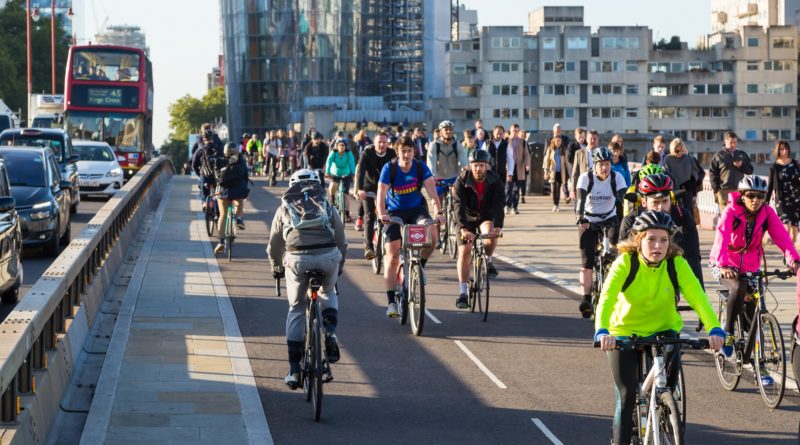Fuel subsidies would pay for 5.3 billion free bike sharing trips, finds report
A new report has further highlighted the short sightedness of European governments, the UK included, in choosing to reduce fuel tax, rather than support and subsidize a raft of viable shared and active transport alternatives, including bike sharing schemes.
The report, produced by CONEBI, who partnered with the European Cyclists’ Federation and Cycling Industries Europe as well as the Clean Cities Campaign (hosted by Transport & Environment (T&E)) to prepare the study, highlights more effective and affordable alternatives to fuel tax cuts currently promised across the EU.
The main findings of the report are:
- Up to 194 million bikes could be sold at the reduced VAT rate, which means the equivalent of the combined population of France, Germany, Ireland and Poland could benefit.
- Up to 302 million public transport passes could be distributed, which means 2 in 3 EU citizens could ride for free for one month.
- Up to 2.2 billion car sharing trips could be provided, equalling 23 trips for every EU citizen at risk of poverty or social exclusion.
- Up to 5.3 billion free rides on shared bikes can be funded, equalling 56 free rides for every EU citizen at risk of poverty or social exclusion.
Picking up on the observation about “citizens at risk of poverty or social exclusion”, it has been reported in the UK media that the largest beneficiary of the fuel duty is not those who need it most, rather it’s those who need it least – affluent owners of heavier fuel consumption vehicles.
Driving this point home:
“… government data shows that about 40% of the poorest households do not own a car. At the other end of the spectrum, the richest households are on an SUV binge. The result is that the top fifth of households spend almost five times as much on motor fuel each year as the bottom fifth.”
Further adding to the pain, “It is estimated the move will save £2.4bn – equivalent to 3 times the current designated active travel infrastructure investment of £738.5m per year across the UK.”
As the recent Cycling UK report rightly highlights, the lost tax revenue ‘could have revolutionised sustainable transport’. The environmental impact of the fuel tax subsidies should not be overlooked either. The “Fuel duty cut is a huge missed opportunity to redirect £2.4bn to decarbonise transport”
More impactful alternatives have come from nations including German and New Zealand, currently offering a variety of public transport support packages, ranging from the 9 Euro unlimited month of rail travel, to a halving of public transport fairs, where both offers run for a 3 month period. In the UK Grant Schapps, SoS for Transport, launched a one month ‘rail sale’ window for 50% reduced train travel, which many have commented was more about revenue generation for Travel and Tourism sectors hit hard by Covid than a move to support cash strapped cost of living crisis facing citizens.
As the Cycling UK report also pinpoints, “tripling investment in active travel would translate into better value for money in 3 ways”:
- The financial relief would be distributed more fairly between families and individuals, regardless of whether they drive, if the money was spent towards creating world-class walking and cycling infrastructure.
- It would also result in a carbon reduction worth 1.5 times the footprint of the entire aviation industry in the UK – a cut of 57.4 megatonnes of CO2-equivalent.
- Redirecting high carbon subsidies to active travel spending would also deliver on big ticket whole-economy issues, including the economy, health, national security and net zero targets.
Duncan Dollimore, head of campaigns and advocacy at Cycling UK, comments:
“The long-term solution to rising prices at the pumps is to reduce our fuel-dependency by investing in public transport and active travel to give people realistic alternatives to jumping into their car.”
“Calls for greater investment in active travel are sometimes rebuffed with claims that there isn’t enough money, but as this report shows, there was money available to revolutionise sustainable transport.”
“But instead of investing to reduce car-dependency the Chancellor has surrendered £2.4 billion of tax revenue, half of which could go to line the pockets of fuel retailers rather than the public.”
This comes in a week when the Chancellor of the Exchequer, Rishi Sunak, will receive a letter co-signed by the Federation of Small Businesses, British Cycling, the Co-Op and the Cycle to Work Alliance calling for a reform of the salary sacrifice (Cycle to Work) scheme, enabling it to become more relevant for lower earners and the self-employed.



